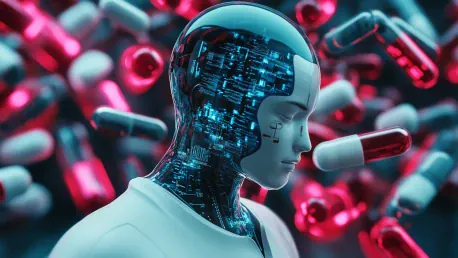Artificial Intelligence (AI) has emerged as a transformative force in numerous sectors, and nowhere is its impact more pronounced than in the field of drug discovery. This field, traditionally marked by high costs, time-consuming processes, and a significant amount of trial and error, is witnessing a revolutionary shift thanks to AI. This article takes an in-depth look at how AI is reshaping drug discovery, from identifying new drug candidates to personalizing treatments for patients.
Background and Significance
Drug discovery has long been a complex and labor-intensive endeavor, often taking over a decade and costing billions of dollars to bring a new drug to market. AI is changing this narrative by offering innovative solutions to accelerate and streamline various stages of drug development. Companies and research institutions are increasingly leveraging AI’s capabilities to enhance efficiency, reduce costs, and improve the success rates of discovering new therapeutic drugs.
Major Achievements
One of the most significant achievements facilitated by AI in drug discovery is the ability to analyze and interpret massive datasets quickly and accurately. This capability has led to several breakthroughs, including the identification of potential drug candidates that may have been overlooked by traditional methods.
For instance, AI algorithms have been utilized to predict how different chemical compounds will interact with biological targets, significantly speeding up the initial phase of drug discovery. In 2024, an AI system identified a promising new antibiotic by screening millions of molecules, a task that would have taken human researchers much longer. This achievement highlights AI’s potential to uncover novel drugs that can address pressing global health challenges.
Unique Traits
One unique trait of AI in drug discovery is its ability to continuously learn and improve from data. Machine learning models, a subset of AI, can be trained on vast datasets from previous experiments and existing medical literature to predict outcomes, identify patterns, and recommend next steps. This adaptive learning process enables AI to become more accurate and efficient over time.
Furthermore, AI excels in integrating diverse types of data, such as genomics, proteomics, and clinical trial results, into cohesive models that can provide insights into the biological mechanisms of diseases and the potential effects of new drugs. This integrative approach is paving the way for more targeted and personalized therapies, reducing the likelihood of adverse effects and increasing treatment efficacy.
Current Status
As of 2024, the integration of AI in drug discovery is gaining momentum, with numerous pharmaceutical giants and biotech startups investing heavily in AI technologies. Research collaborations between AI companies and drug manufacturers are becoming more common, fostering an environment of innovation and cross-disciplinary expertise.
AI-powered platforms are now a staple in drug discovery pipelines, aiding in everything from hypothesis generation and compound screening to preclinical and clinical trial design. These platforms are not only expediting the discovery process but are also enhancing the precision and reliability of research outcomes.
Key Achievements and Further Resources
In summary, the impact of AI on drug discovery has been transformative, marked by expedited timelines, cost reductions, and improved accuracy in discovering new drugs. Notable achievements include the rapid identification of viable drug candidates, personalized treatment options, and enhanced data integration capabilities.
For those interested in delving deeper into this fascinating intersection of technology and medicine, consider exploring publications from leading research institutions, attending conferences focused on AI in healthcare, and following news from pioneering companies in the field.
The journey of AI in drug discovery has just begun, and its potential to revolutionize medical research and treatment will likely continue to unfold in the years to come.









